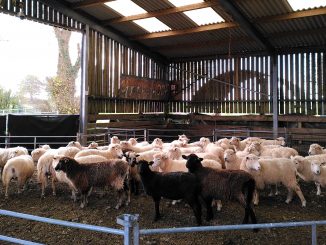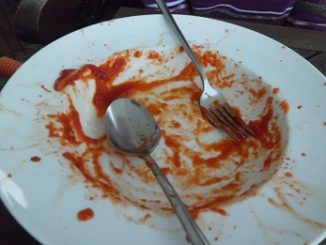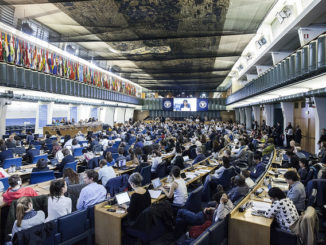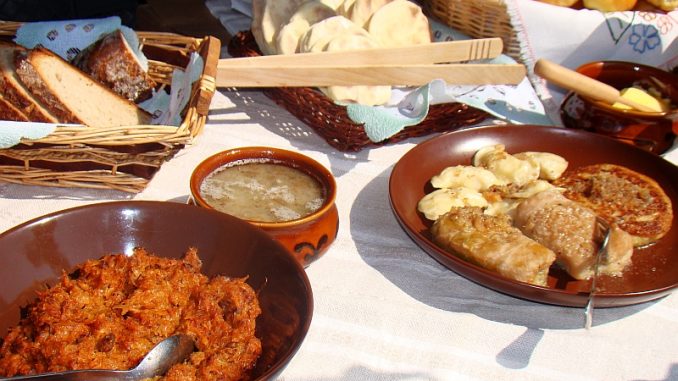
The world is getting stranger. Events that would have shocked us a few years ago don’t even surprise us anymore. As the Covid-19 outbreak hits the economy, we may experience a paradigm shift that no one expected. Igor Tomasz Olech looks at the framing of food security and food sovereignty in the EU, and how Poland is ripe for a conversation about food sovereignty.
Critiquing Parameters of Food Security
The concept of food security is coloured by neo-liberal economic thinking. It doesn’t matter whether a state produces enough food to feed itself, what matters is that it can import enough to feed itself. Thus Singapore is supposedly the most food secure nation on the planet despite only producing 10% of its own food: it has a affordable food and a high standard of living, while a typically busy post helps with importing and exporting.
The Global Food Security Index (GFSI) uses affordability, availability, quality and safety as its core metrics for understanding food security, with Singapore scoring especially well for affordability.
Taking into account a wider set of variables, encompassing natural resources and resilience risks, Singapore drops 11 places while Ireland tops the poll, in part due to its climate and lower likelihood of extreme weather or natural disasters. That it has a tiny horticulture sector (1.46% of its land area is dedicated to ‘other crops, fruit and horticulture’) and thus imports 72,000 tonnes a year of a core dietary staple like potatoes a year, while primarily sending the vast bulk of its foods – meat and milk products – into long complex agri-food exporting systems, isn’t part of the food security equation: Ireland is relatively wealthy and has a temperate climate so the import export regime is not so important in considering food security.
One of the many things the current covid19 crisis highlights is the risk of reliance on long and complex international value chains. Food queues, panic buying, countries starting to re orientate towards their own consumption and calls for rationing make this case all the more stridently in recent weeks.
UK | Coronavirus: Rationing Based on Health, Equity and Decency now Needed
Food Sovereignty
What do we mean by food sovereignty? The Declaration of the Forum for Food Sovereignty, Nyéléni, defines the concept as:
Food sovereignty is the right of peoples to healthy and culturally appropriate food produced through ecologically sound and sustainable methods, and their right to define their own food and agriculture systems. It puts the aspirations and needs of those who produce, distribute and consume food at the heart of food systems and policies rather than the demands of markets and corporations. – Declaration of the Forum for Food Sovereignty, Nyéléni, 2007
In the 2014 paper “Disentangling the consensus frame of food security: The case of the EU Common Agricultural Policy reform debate”, food sovereignty is presented as a “counter-frame” to food security.
In the study, the researchers examined ideological framings of food security, from state-assisted increase of conventional production, to market-liberal liquidation of tariffs, to the combination of environmental and regional factors influencing food security. They found that food sovereignty was the least represented by EU stakeholders and was neglected by most of the political forces.
Since 2007, Food Sovereignty has been a clarion call for groups like La via Campesina and Friends of the Earth International. Moreover, Food Sovereignty is presented as a radical, intersectional counterpoint to the rise in authoritarianism and far right politics, as can be seen in the latest edition of the Nyeleni newsletter and in the works of the Emancipatory Rural Politics Initiative and others.
Unexpected allies
Until quite recently, food sovereignty has been championed by left and green movements – the same groups that have long lobbied for comprehensive CAP reform.
The ground had already started to shift somewhat in eastern and central Europe, with Hungary and Homeland Farming providing an especially interesting confluence of influences, where rural, conservative and green political elements to an extent come together.
The political impact of current events may yet bring unexpected allies into the food sovereignty camp. Several recent articles raise the question of how nationalist movements might capitalize on the current crisis by outspokenly rejecting globalization.
Radical movements may not represent uniform positions on all issues, but they have in common their opposition to mainstream positions – which in recent decades have been dominated by a competition-driven economic outlook that fetes free trade and ravages natural resources. What left-leaning and ecological movements have been advocating for many years now seems to have buy-in from other political movements.
An example from my home country, Poland, is Krzysztof Tołwiński, a politician and farmer from the far-right Konfederacja party, advocating for food sovereignty on his Youtube channel. So far the Konfederacja party has been associated with a more libertarian outlook on economics, but now things seem to be changing fast that the far-right is integrating food sovereignty concpets.
Polish Food Self-Sufficiency
But radical green, left and right-wing parties and movements might not be only proponents of food sovereignty. In December of last year, the legendary Polish labour union newspaper Tygodnik Solidarność (Solidarity Weekly) dedicated an entire issue to food security:
In the new circumstances, when the European Union will have to import food for the first time next year because it will not feed itself, it is worth asking ourselves whether Poland is a country that is self-sufficient in food, what does the security of food infrastructure look like here, and finally how the Common Agricultural Policy fits in with our food security? And if there is an armed conflict or some food crisis in Poland’s immediate vicinity, will the sustainability and reliability of food supplies in Poland be ensured?
These nationalist narratives can clash with the available facts – the latest statistics from March 27th demonstrate that the EU should have no trouble feeding itself in the near future. In fact the EU exports more food than it imports, and year on year its agricultural produce and exports are on the rise:
“2019 proved to be a record year for EU agri-food trade. The export value of agri-food products came to a total of €151.2 billion (rising by 10% from December 2018), while imports accounted for €119.3 billion (an increase of 2.5% compared to 2018), bringing the overall value of trade for the year to €270.5 billion. The trade surplus grew by €10.9 billion from 2018 (an increase of 52%) to reach an all-time high of €31.9 billion.”
Although the Solidarity Weekly piece clings to the food security framing, food “self-sufficiency” is explicitly mentioned several times. It goes on to pinpoint the absurdities of the current system, by which some countries export food while their own citizens rely on UN support.
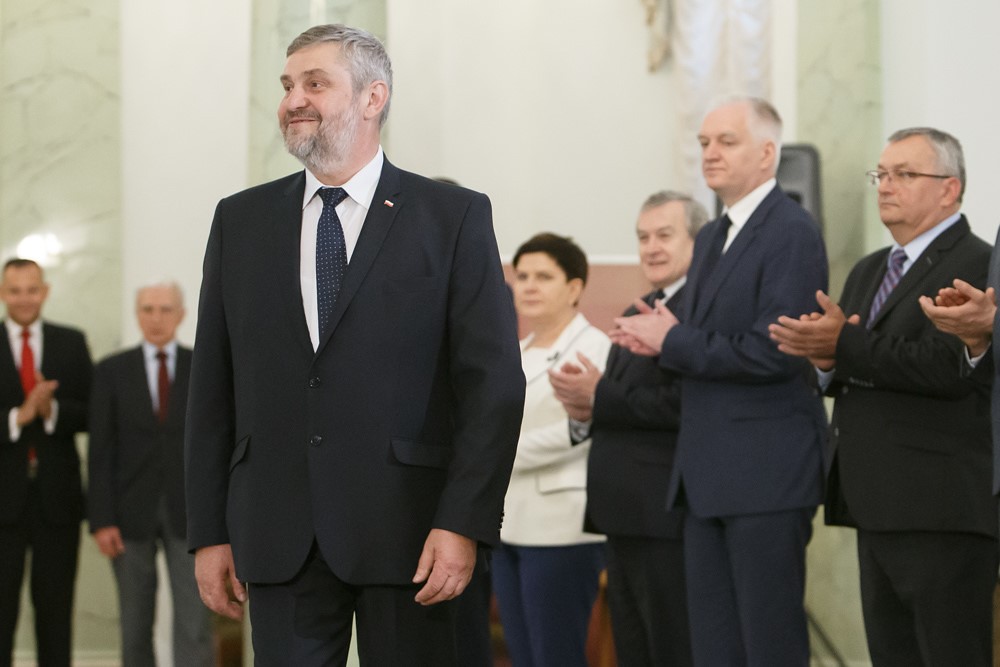
Polish agricultural minister Jan Krzysztof Ardanowski struck a similar note in an interview he gave in the wake of the coronavirus outbreak. Ardanowski stated that Poland can “feed itself” since it remains a net exporter of agricultural products. Food self-sufficiency was the focus on the interview:
Poland is a self-sufficient and sufficiently safe country and as a society we should be grateful to farmers for food security, we do not tremble that there will be a food shortage in Poland.
Interestingly in Ardanowski’s parlance it is not “food sovereignty” but “food security” that will keep Poland from going hungry.
Terminological Nuance
Discussions of terminological nuance may seem academic in a time of crisis. But we are living through a historic moment that could help us catapult these terms into common understanding. Explicitly or implicitly, food sovereignty and the type of approach to farming it represents, is a talking point for a wide ranger of actors now, with green, and left voice sbeing joined by both far right and now also centrist positions as seen in Poland’s conservative and pro-social labour union Solidarność, and for a conservative minister from the ruling PiS party.
If we are not crystal clear on our terminology, we may be led to believe that regional self-sufficiency is not important once we have food security. But this would ignore the fact that our food security is dependent on the long supply chains of old – which we can see are failing in a time of global crisis.
A body of work needs to be done to unpack the differences between food security, a national(ist) approach to food sovereignty in its various iterations, and an intersectional, cosmo-local solidarity economy approach to food sovereignty.
Now is the time to get to this task. Those of us who are familiar with food policy need to step up and bridge the divides. This is of utmost importance at a time when people from different political backgrounds, who might not often agree with one another, may at least agree to some extent on how we proceed with our food production.
Consistent terminology is, in fact, crucial. According to Confucius, the restoration of the state shall begin from restoration of the true meaning of concepts. The restoration of CAP might as well.
More on Covid-19 and food security
Coping with Covid19 – Commoning as a Pandemic Survival Strategy
Council of Ag Ministers meet on Covid19 | Green Lines, State Aid, CAP Extension
Coping with Covid19 – Tensions in Farming, Trade and the EU Institutions
Coping with Covid19 – the Open Food Network and the New Digital Order(s)
More on Food Sovereignty
Bhutan | An Economy for Food Sovereignty and Organic Farming




